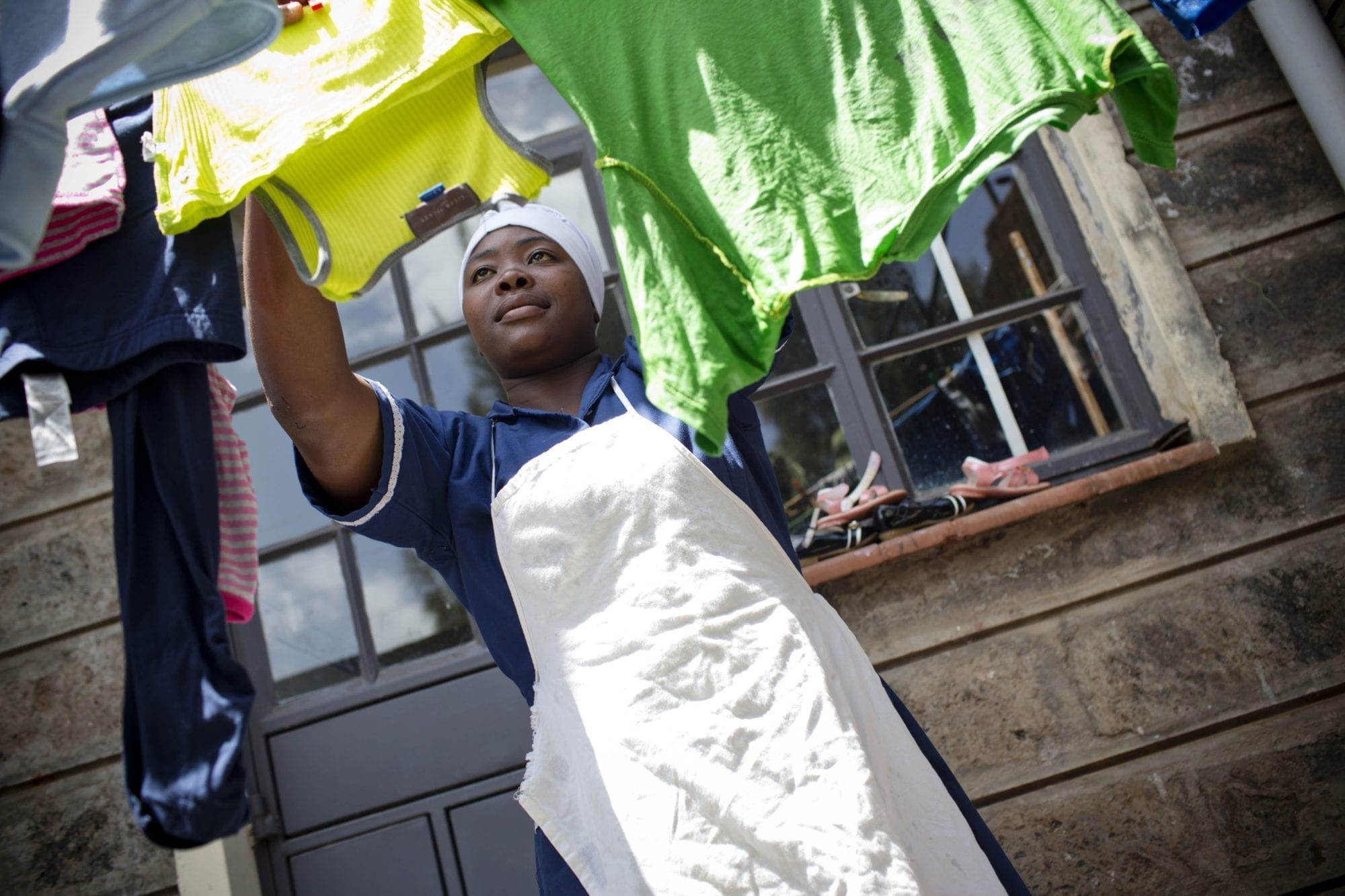Around the world, workers, their unions and other associations are striving to promote the rights of working people at their jobs and in their everyday lives.
While every job has value, not all jobs are “good jobs.” Millions of jobs around the world do not offer the social protections or the sense of dignity that allow workers to enjoy the benefits of their own hard work.
The Solidarity Center works with unions and other allies to empower workers around the world to achieve decent work together.
WHAT MAKES A “GOOD JOB”?
In Thailand, Burmese migrant workers and their families learn about their rights on the job through training programs organized by the Human Rights Development Foundation (HRDF), a Solidarity Center ally.
But what are those rights? What makes a job a “good job”?

At the Pae Pla Pier in Mahachai, Thailand, Burmese dockworkers cart barrels of fish. Credit: Solidarity Center/Jeanne Hallacy
GOOD JOBS ARE SAFE
At the Gldani Metro Depot in Tbilisi, Georgia, employees work with dangerous chemicals and face constant danger from high voltage electrical wires. Their union, the Metro Workers’ Trade Union of Georgia (MWTUG), is addressing these safety and health risks with assistance from the Solidarity Center.
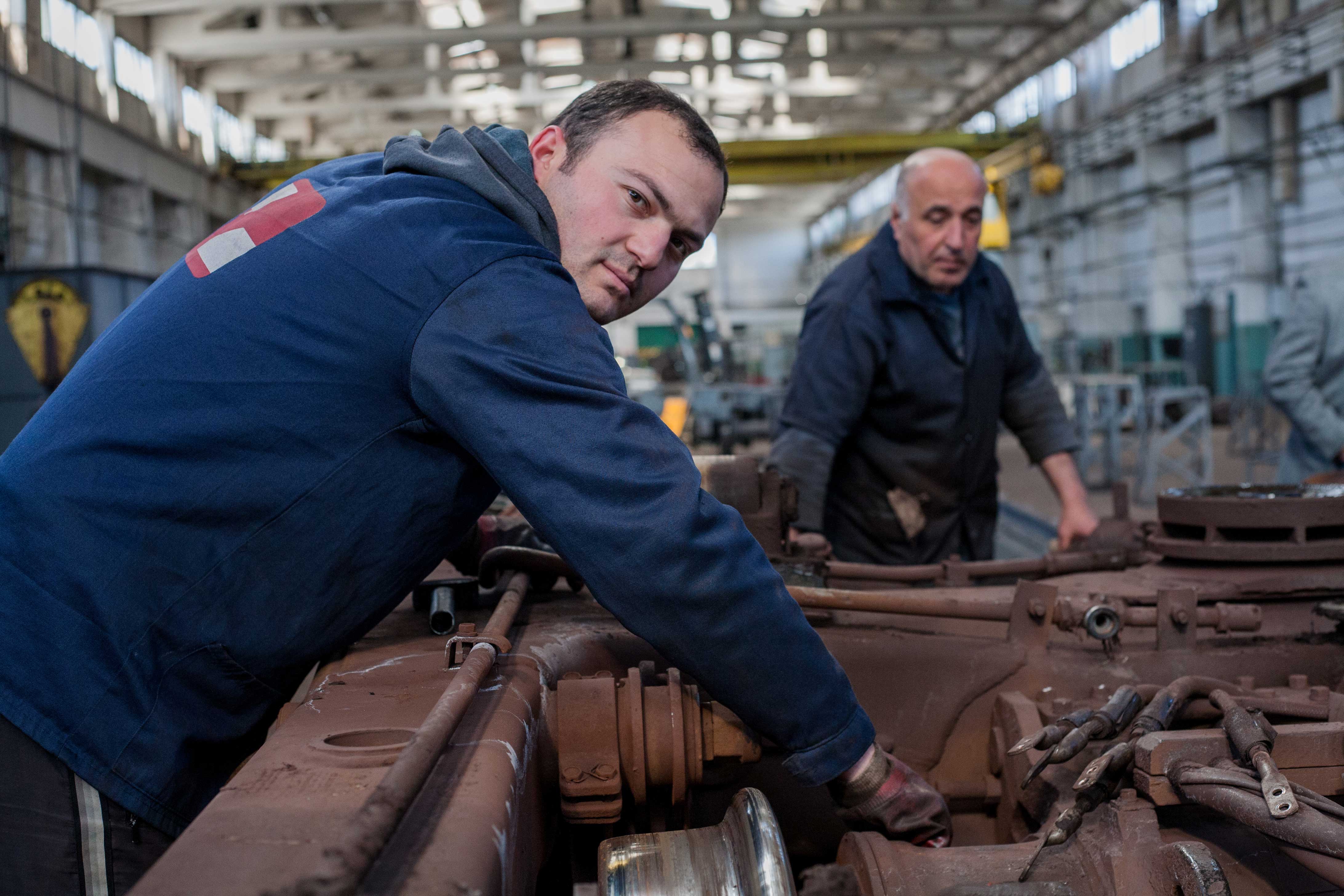
At the Gldani Metro Depot in Tbilisi, Georgia, employees like repairman Tamaz Simonishvili work with dangerous chemicals and face constant danger from high voltage electrical wires—safety and health risks his union, Metro Workers’ Trade Union of Georgia, is addressing with the assistance of the Solidarity Center. Credit: Solidarity Center/Lela Mepharishvili
The Solidarity Center also partners with numerous unions and worker associations in Bangladesh to train garment workers in fire safety and other measures to improve their working conditions.
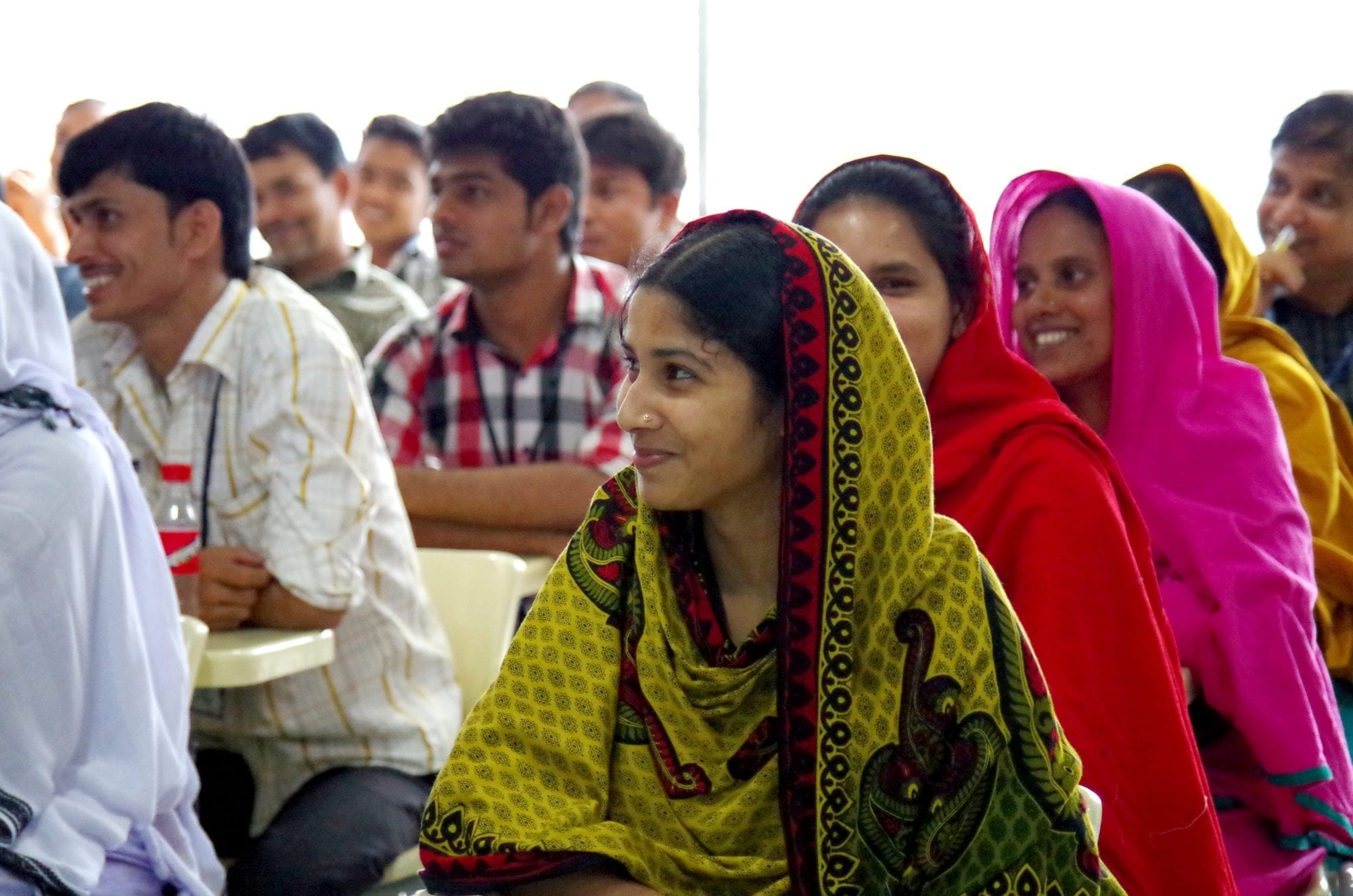
The Solidarity Center partners with numerous unions and worker associations in Bangladesh to train garment workers in fire safety and other measures to improve their working conditions. Credit: Solidarity Center
GOOD JOBS PAY LIVING WAGES
At the Palmas del César palm oil extraction plant in Minas, Colombia, workers are represented by Solidarity Center union ally Sintrapalmas-Monterrey. The union organized subcontracted workers into its bargaining unit, significantly improving their wages, benefits and job conditions.
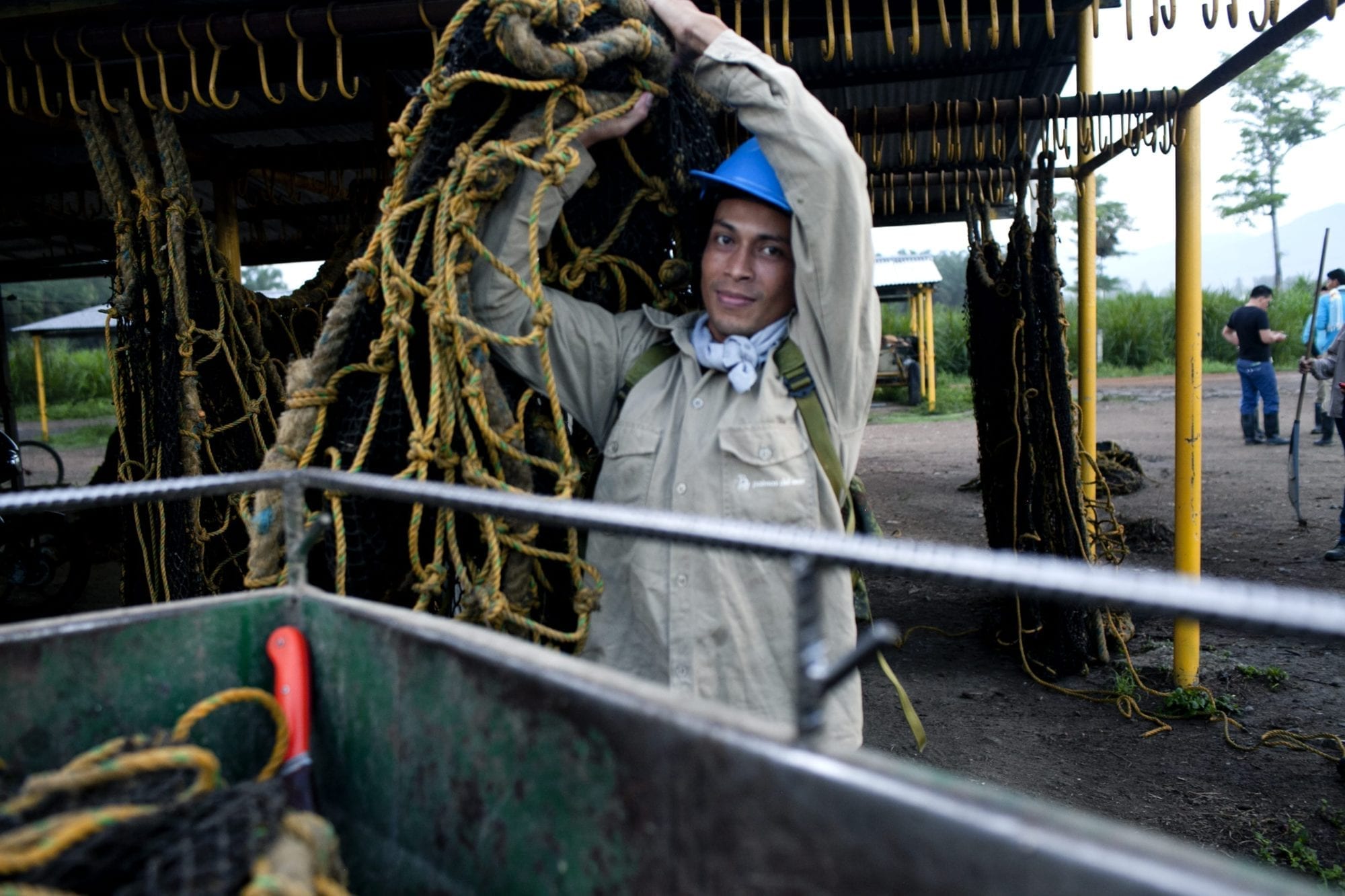
At the Palmas del César palm oil extraction plant in Minas, Colombia, workers are represented by Solidarity Center union ally Sintrapalmas-Monterrey. The union organized subcontracted workers into its bargaining unit, significantly improving their wages, benefits and job conditions. Credit: Solidarity Center/Carlos Villalon
In Sri Lanka, where jobs are shifting from the industrial to service sector, workers like members of Food, Beverage and Tobacco Industry Employees’ Union (FBTIEU) are forming unions in the hotel and tourism sectors to ensure that the new jobs pay living wages and offer social benefits.
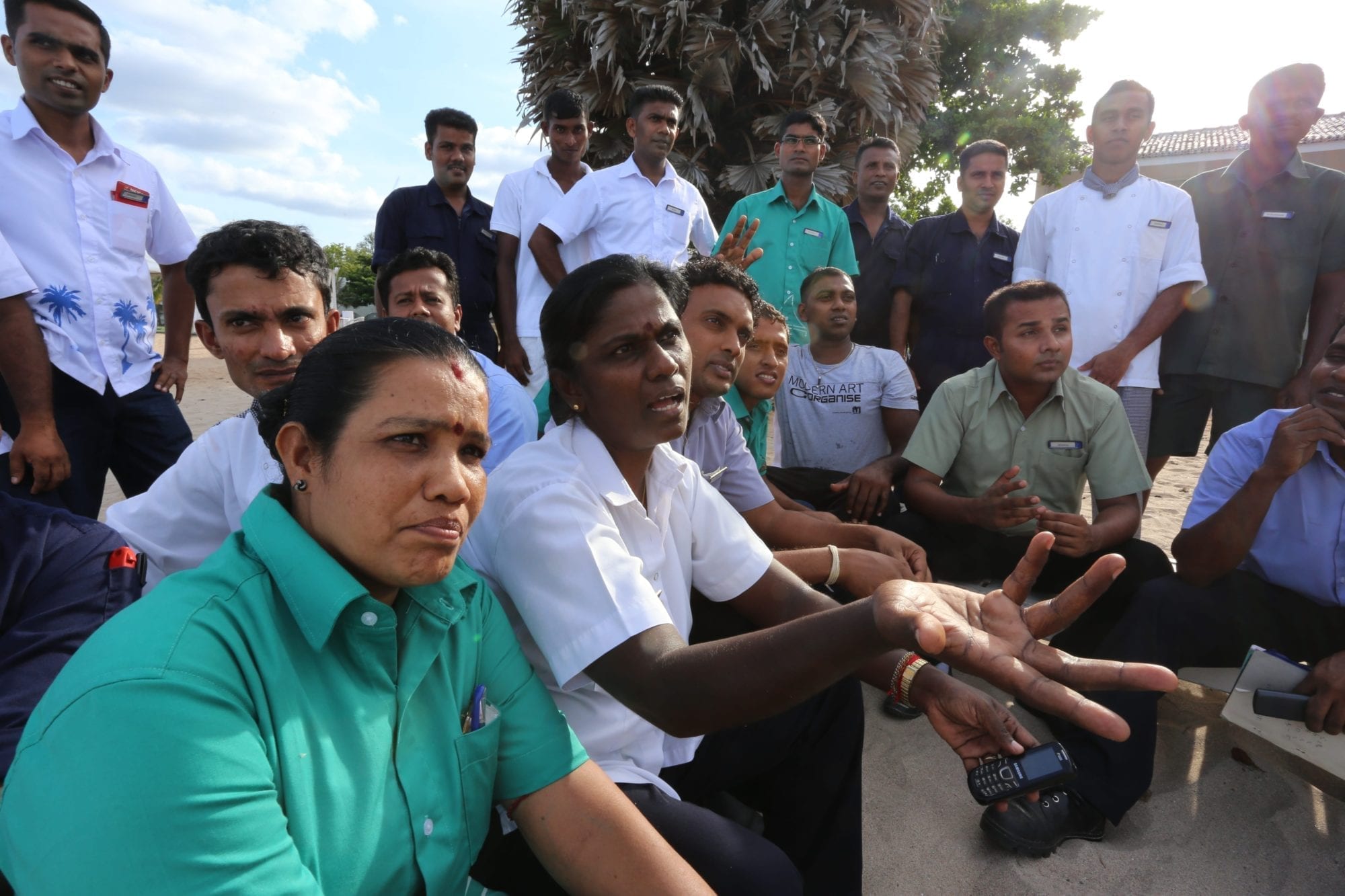
In Sri Lanka, where jobs are shifting from the industrial to service sector, workers like members of Food Beverage and Tobacco Industry Employees’ Union are forming unions in the hotel and tourism sectors to ensure the new jobs pay living wages and offer social benefits. Credit: Solidarity Center/Pushpa Kumara
GOOD JOBS TAKE CARE OF WORKERS
The National Union of Mine, Metal, Steel and Allied Workers of the Mexican Republic (SNTMMSSRM, known as “Los Mineros”) has won many bargaining pacts that include significant economic benefits and essential safety and health protections for workers.
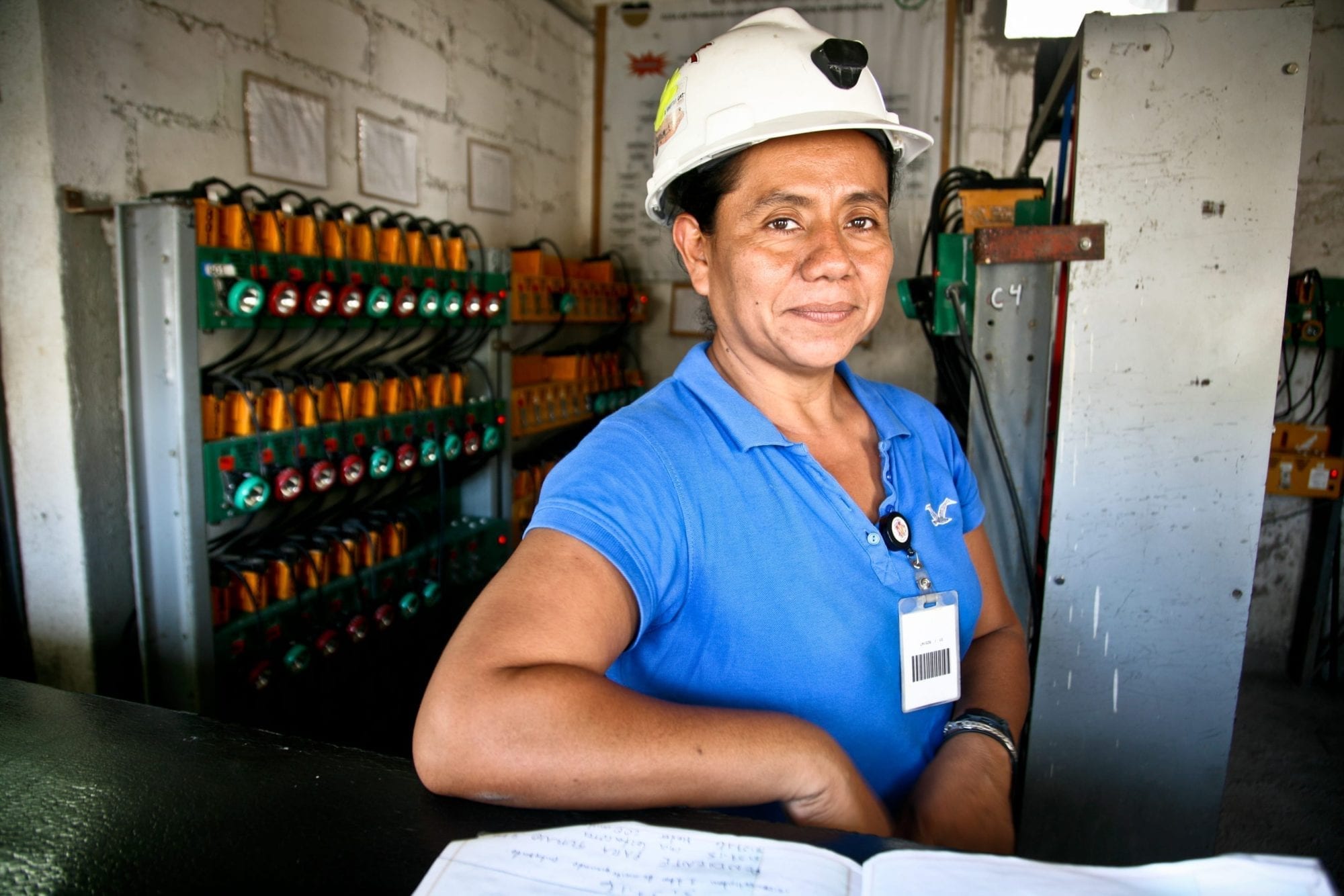
A miner in Mexico’s Baja California Sur, Ruth Rivera also is a shop steward for her union, SNTMMSSRM (Los Mineros), which has won bargaining pacts that include significant economic benefits and essential safety and health protections. Credit: Solidarity Center/Roberto Armocida
Agricultural workers in Rustenburg, South Africa, are members of the Food and Allied Workers Union (FAWU), a Solidarity Center partner, which represents migrant farm workers in Mpumalanga Province and assists them in gaining access to health care and other services.

A FAWU member plants cabbage seedlings on a farm in Rustenburg, South Africa. Credit: Solidarity Center/Jemal Countess
GOOD JOBS GIVE WORKERS A BREAK
Across the Arab Gulf, more than 2.4 million migrant domestic workers often toil 12–20 hour days, six or seven days a week. Domestic workers in Jordan recently formed a worker rights network that advocates for better working conditions and includes migrant workers from Bangladesh, Indonesia, the Philippines and Sri Lanka.

Sri Lankan domestic workers in Jordan defend their rights. Credit: Solidarity Center/Francesca Ricciardone
The Kenya Union of Domestic, Hotel, Educational Institutions, Hospitals and Allied Workers (KUDHEIHA), a Solidarity Center partner, has been at the forefront of championing the rights of domestic workers at the national level and working locally to organize workers into the union and educate them about their rights.
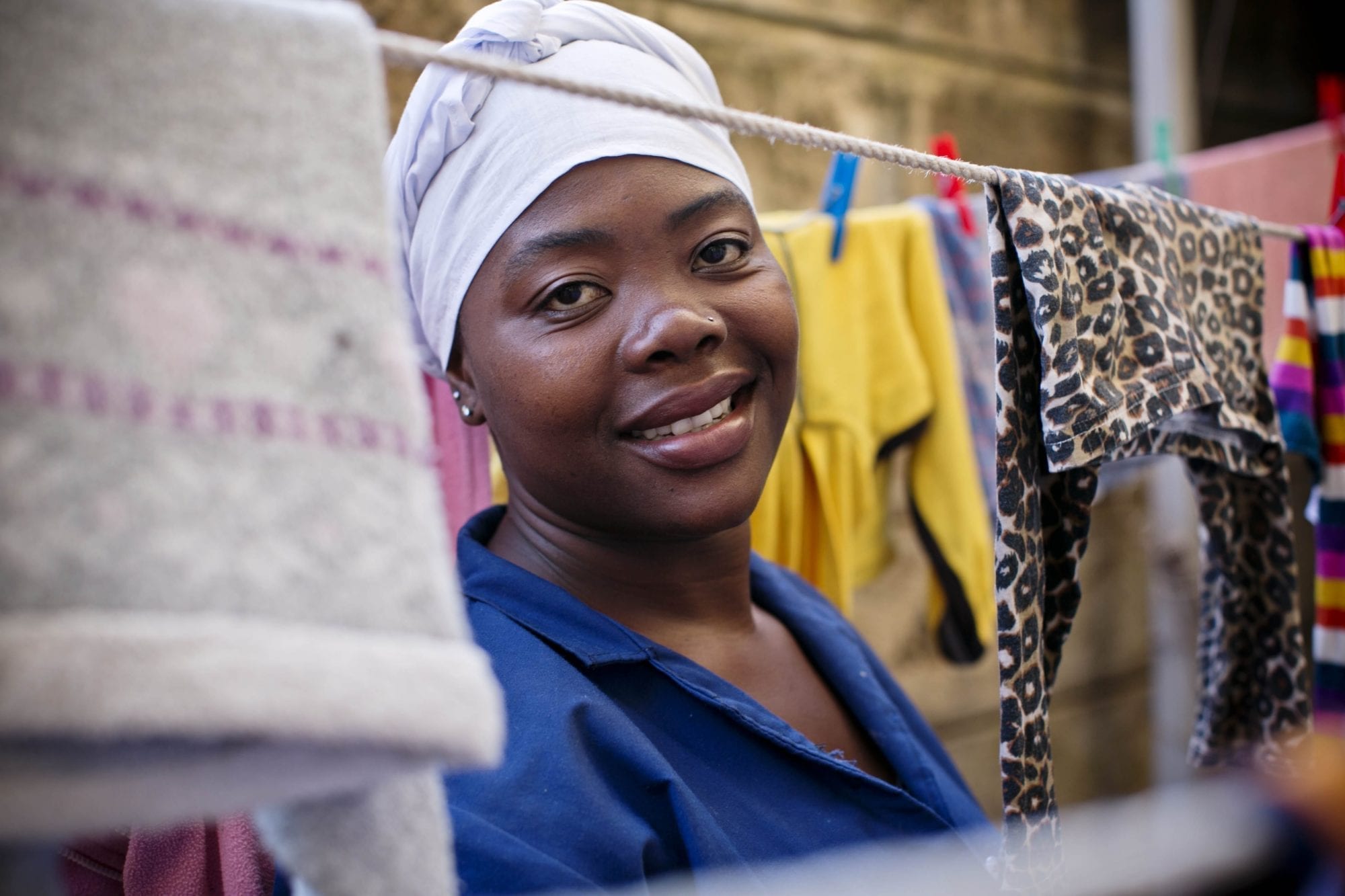
The Kenya Union of Domestic, Hotel, Educational Institutions, Hospitals and Allied Workers union, a Solidarity Center partner, has been at the forefront of championing the rights of domestic workers at the national level and working locally to organize workers into the union and educate them about their rights. Credit: Solidarity Center/Kate Holt
GOOD JOBS EMPOWER WOMEN
Dozens of journalists and media professionals have taken part in the Solidarity Center’s ongoing Gender Equity and Physical Safety training in Pakistan, identifying priority gender equality issues at their workplaces and in their unions, and outlining strategies for addressing those issues.

Journalists in Pakistan participate in Solidarity Center-sponsored gender equality workshops. Credit: Solidarity Center/Immad Ashraf
Through her union, the Palestinian General Federation of Trade Unions Workers Union (PGFTU) and the Solidarity Center, kindergarten teacher Khadeja Othman says she has gained new skills in workshops, training courses and hands-on experience.

Khadeja Othman, a Palestinian kindergarten teacher in Ramallah’s Bet Our Al Tahta village. Credit: Solidarity Center/Alaa T. Badarneh
ORGANIZED WORKERS HELP CREATE GOOD JOBS
Workers and their families on the Firestone rubber plantation used their union, the Firestone Agricultural Workers Union of Liberia (FAWUL), to negotiate work quotas that could be met without the need for children to assist their parents. Children also now receive free education as a result of union negotiations.
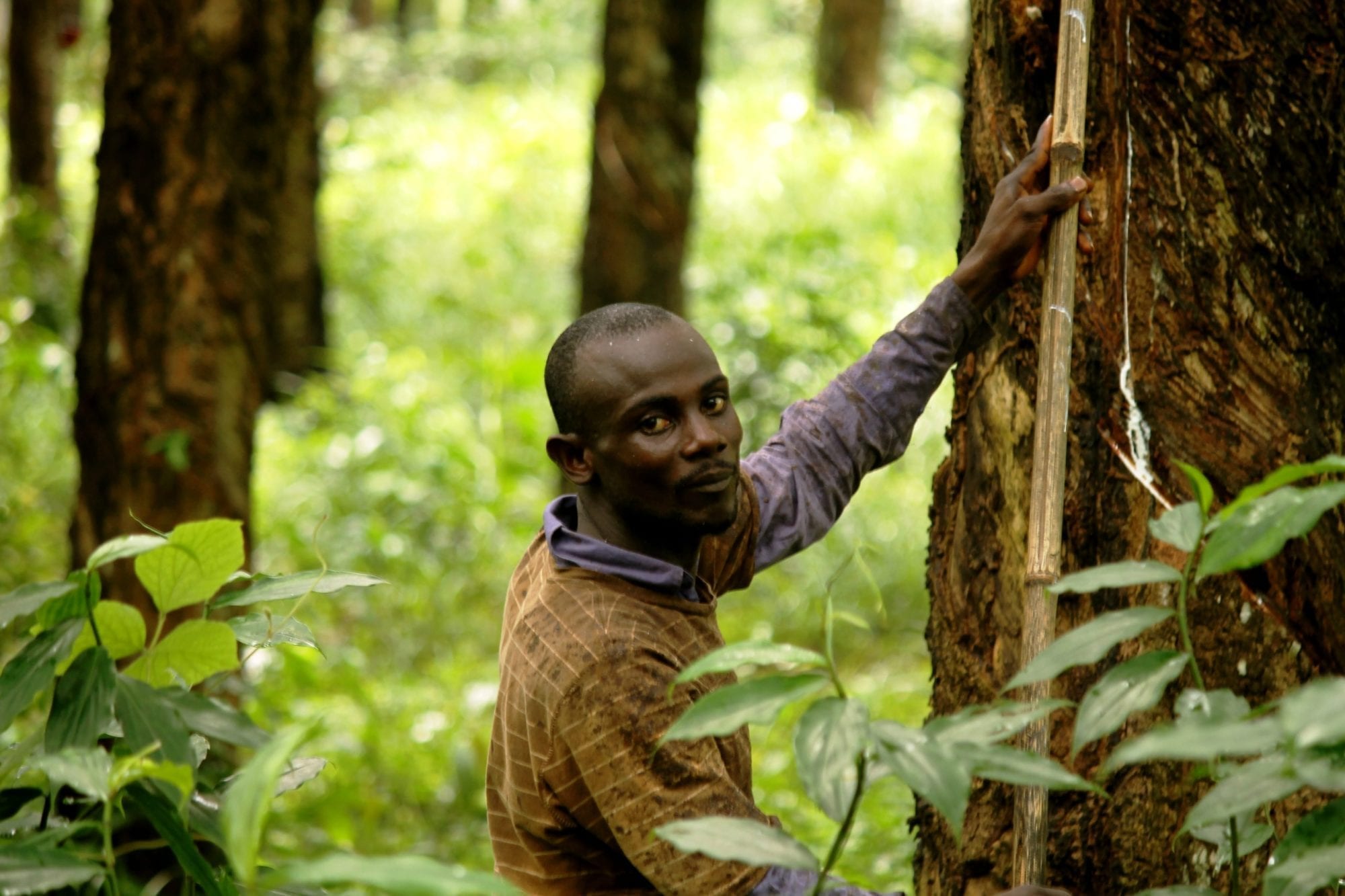
Opa Johnson, a rubber tapper on the Firestone plantation, is a member of the Firestone Agricultural Workers Union of Liberia, which negotiated work quotas that could be met without the need for children to assist their parents. Children also now receive free education as a result of union negotiations. Credit: Solidarity Center/B.E. Diggs
Even self-employed workers have organized to defend their right to decent work. The Zimbabwe Chamber of Informal Economy Associations (ZCIEA), a Solidarity Center partner, trains negotiators in collective bargaining with municipalities to provide adequate space for vendors and other informal workers throughout their cities.

Nyaradzo Tavariwisa makes and sells peanut butter to support her family. Credit: Solidarity Center/Jemal Countess
UNIONS HELP MAKE JOBS BETTER
Working people time and again have proven that when they are free to form and join unions and bargain for better working conditions, they can achieve decent work, improve their lives and benefit their families and communities.
In Peru, two unions, both Solidarity Center allies, represent palm workers on plantations and in processing factories. These unions have helped improve dangerous working conditions, access to healthcare and job stability through collective bargaining and labor inspections.

Peruvian palm oil workers travel across the plantation where they live and work. Credit: Solidarity Center/Oscar Durand
THE SOLIDARITY CENTER HELPS WORKING PEOPLE ATTAIN DECENT WORK
Decent work means employment that provides living wages in workplaces that are safe and healthy. Decent work is about fairness on the job and social protections for workers when they are sick, when they get injured or when they retire.

